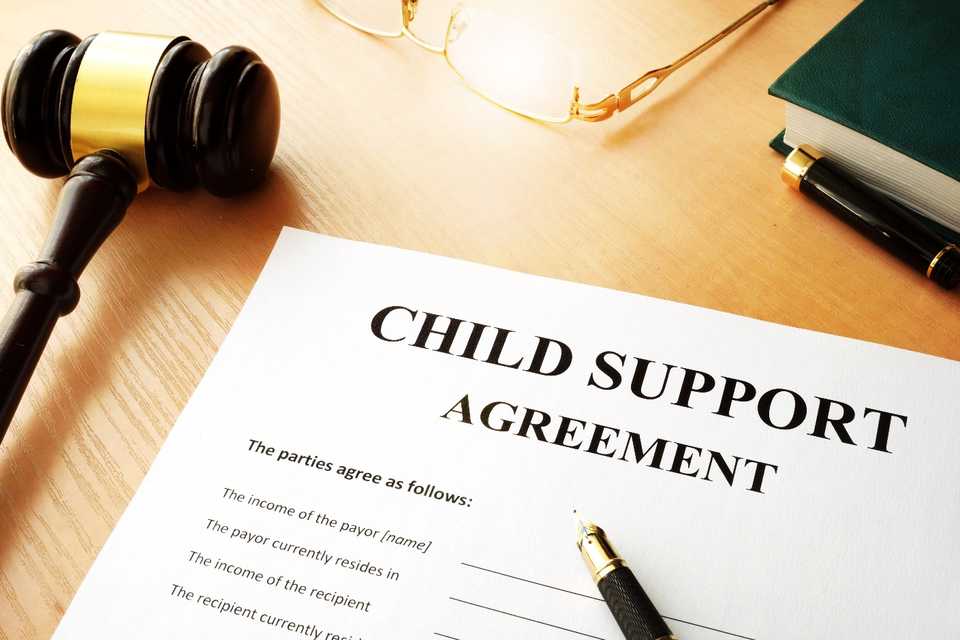Child support payments are given by a mother or father for the expenses of raising a child. The non-custodial parent generally pays child support to the parent with custody of the child.
Child support is the right of a dependent child and in Ontario, the Family Law Act provides Child Support Guidelines and the Federal Child Support Tables.

Can any parent claim child support? Yes, whether divorced, separated, never married, or never had a relationship, a parent can file an order for support.
See how a family lawyer from the JuriGo network can help you claim child support.
Fill out the short online form on this page to compare family lawyers in Ontario, free of charge!
Do I need to hire a lawyer to ask for child support?
You are not required to hire a lawyer to ask for an order of support from the court.
Many people choose to file a child support claim on their own to avoid paying lawyer fees. However, family law matters are quite complex, to say the least. You are sure to encounter many challenges in documentation to complete your file.

Complex cases or issues such as access to the child, child protection, questions on eligibility of the parent, amount of child support ordered, etc., are better handled by family lawyers with in-depth knowledge of Family Law.
If you are in the process of a divorce, hiring a lawyer can help you protect the best interests of your child . Child support can be included in a divorce application.
What to do if you can’t afford a lawyer
Are you worried because you don’t have money to pay a lawyer? If you are eligible for legal aid, Duty Counsel (lawyers at the courthouse) can help you prepare your documents, assist during your court appearance, and review agreements for mediation.
Most courthouses also have Family law Information Centres where you can get advice regarding court processes.
Who qualifies for legal aid?
If you have legal matters such as wanting to claim child support, legal aid can pay for a lawyer to represent you if you qualify.
You will be asked about any money you have or assets such as property, investments, savings, or income to check your financial eligibility.
Refer to the table below for eligibility guidelines for legal aid.
| # of Family Members | Annual Household Income (For most cases) | For domestic violence cases |
|---|---|---|
| 1 | $18,795 | $22,720 |
| 2 | $32,131 | $32,131 |
| 3 | $39,352 | $39,352 |
| 4 | $45,289 | $45,440 |
| 5 or more | $50,803 | $50,803 |
| Single boarder | $12,330 |
** From Legal Aid Ontario
Individuals with income or property may be eligible to legal aid with a contribution agreement. You will repay Legal Aid Ontario for a portion of the legal fees based on your income.
If you want to know more about contribution agreements, visit Legal Aid Ontario-Contribution Agreements .
Who can file a motion for child support?

A parent can be a birth parent, an adoptive parent, or a step-parent.
| The Family Law Act recognizes not only biological parents and defines a parent as “ a person who has demonstrated a settled intention to treat a child as his or her family, except under an arrangement where the child is placed for valuable consideration in a foster home by a person having lawful custody”. |
|---|
By this definition, any person who has proven the intention to act as a parent to a child can be asked to pay child support. This includes biological parents, non-biological parents, step-parents, or adoptive parents.
For disputes concerning parent qualification, the petitioner must provide evidence such as the child’s birth certificate, adoption certificate, marriage certificate, etc.
Who is entitled to child support?
As mentioned earlier, child support is not the right of a parent but that of the child.
A child must be a “dependent” to qualify for child support . Generally, this means a child must be below 18 years of age and still living with a parent.
A child is usually no longer a dependent if they are married or over 16 years old and moved out of the home voluntarily.
Certain exceptions regarding child support entitlement may apply even if the child lives on his own or is above 18 years old. Examples would be those in post-secondary education, have a disability, or a chronic illness. These persons are referred to as adult children.
A court may order child support until the child finishes the first degree at around age 22. Child support can be ordered by the court if an adult child pursues a second degree or graduate school, depending on the circumstances of the case.
Child support for an adult child with an illness or disability may continue his entire life.
The Purpose of Child Support

Child support is money provided by a parent to another parent with physical custody for the care of the child. If parents have shared custody, the parent with a higher income may pay child support to the other parent so that the child can enjoy similar standards of living in both homes.
Child support pays for:
- Room and board
- General childcare
- Medical costs: Dentists, optometrists, or other expenses not under OHIP)
- Education
- Extra-curricular activities
Extraordinary & Extra-curricular expenses
Section 7 covers extraordinary and extra-curricular expenses that are in proportion to the parent’s income. The amount to be paid is established by the court in consideration of the following:
- The payor parent’s gross income (regardless of the recipient parent’s income)
- The number of children
Included in this section are things like daycare, dental treatments, medical expenses, day camp, etc.
Extra-curricular activities such as skiing, piano, dance, etc. must pass the test of “necessary” and “reasonable”. They are considered in light of the financial circumstances of the parents.
Who pays child support?
Every parent must provide child support whether they were married, common-law partners, or never had a relationship with the other parent. Child support is also mandatory even if the parent does not see or have a relationship with the child or has other children or family.
Family Law in Ontario is based on the principle that a child must have as many resources as possible . A child should benefit from the parents’ means. In this regard, child support can be paid by both biological and step-parents of a child at the same time.
Child Support Payments in Split Custody Situations

In split custody situations, one parent has custody of one or more children while the other parent has custody of the others.
In calculations for child support in split custody situations, each parent calculates what they should pay the other parent. The lower amount is deducted from the higher amount.
| As an example: If Parent A’s child support payment for 1 child to Parent B is $400 and Parent B’s monthly child support payment for 2 children to Parent A is $870 $870 - $400 = $470 Hence, Parent B will pay $470 to Parent A every month. |
|---|
Child Support Payments in Shared Custody Situations

In a shared custody arrangement, the children spend almost the same time with each parent or at least 40% of the time.
To calculate child support by a parent to the other , each one will estimate the child support they must pay to the other parent who has custody.
The lower amount is deducted from the higher amount. The parent with the higher amount will pay the difference to the other parent.
For instance, if Parents A and B have two children:
- Parent A has an annual income of $35,000;
- Parent B has an annual income of $60,000.
Based on the Federal Child Support Tables:
- Party A’s monthly child support payment to Party B is $532 a month.
- Party B’s monthly child support payment to Party A is $915 a month
$915 - $532 = $383
Parent B will pay $383 in child support to Parent A every month.
You can easily do your child support calculation by visiting the 2017 Child Support Table Look-Up. Note that the calculations are per province.
Child support for high-income earners

For parents with high incomes (over $150,000), the courts have the discretion to decide whether to apply the federal table amounts or not.
In such situations, the court will consider the child’s lifestyle, the financial capacity of each spouse, and expenses under Section 7.
The court will ensure that the results are reasonable based on the payor’s annual income.
Reducing, Increasing, or Terminating Child support

Certain events can have a significant effect that could reduce, increase, or terminate child support. This can only be done by filing a request in court. For the court to consider making such a change, evidence of “material change in circumstances” must be presented.
Material changes include:
- A child starts a university education;
- Disability or illness that affects the payor’s financial capacity;
- Decrease or increase in the payor’s income;
- Marriage of a child;
- An adult child develops a chronic illness or disability that prevents him from taking care of himself.
What to do if a parent cannot pay child support
Failure to pay child support is a serious matter. Canadian laws take the enforcement of child support seriously.
A payor parent who cannot pay child support must inform the **Family Responsibility Office (**FRO) of the situation. While the FRO cannot amend or stop court orders, under certain conditions, it can reduce the amount of the support.
Generally, you must file a motion in court to request for a pause, reduction, or termination of child support orders.
A family lawyer in Ontario can assist you with filing a motion in court for child support amendments.
Why hire a family lawyer in Ontario for child support claims?

While it may seem unnecessary to hire a lawyer to claim child support, doing so will save you a lot of time and energy.
Family lawyers are knowledgeable about the court process and will ensure your claim is well-constructed to get the best outcome.
Other reasons why hiring a child support lawyer is ideal:
Handle a complicated case: If your ex-spouse or partner disputes the amount of child support or custody arrangements, a family lawyer is the best person to help you protect your interests with a positive ruling in your favour.

Child support calculations: It is easy enough to estimate child support using online resources but a family lawyer can give the exact information you need for the nuances of your case.
Changes to child support: To amend a child support order, there must be considerable change in a parent’s circumstances. A family lawyer can give you advice and determine if your current situation meets the criteria.
Child custody and support cases: Most cases have child support and custody tied together. A family lawyer can help with both issues to get you the outcome you desire.
Other issues connected to child support claims:
-
Paternity issues or challenges;
-
Residence of the child before the case;
-
Difficulties in reaching an acceptable agreement between parties
Hiring a lawyer to represent you in a child support claim is to your advantage. Certain issues can harm your claim and when done incorrectly, you could lose.
Because you are your child’s champion and best support system, you need the best professional to handle your case.
Compare family lawyers in Ontario for child support claims by filling out the short online form below, free of charge!
How much does a child support lawyer in Ontario charge?

It is difficult to accurately determine the cost of a family lawyer because several factors are considered in the calculation.
The geographical area or location and the lawyer’s reputation or expertise play a crucial role. Many law firms offer free initial consultations to discuss your options. Some lawyers also recognize Legal Aid certificates.
With that in mind, a family lawyer can charge an average price of CAD$325 an hour in some cases. It can be higher with bigger law firms. In choosing a family lawyer, you need to ask for the pricing structure and what the fees include.
How to find a Family law specialist
An hourly rate structure is most common among family lawyers and they charge the number of hours they will work on your case. There are some lawyers, however, who may charge a FLAT fee for your entire legal matter.
The best way to move forward is to compare lawyers in your area and how much they charge for a child support case.
Please fill out the form on this page, FREE OF CHARGE , and receive competitive offers from reputable lawyers in JuriGo who can help you!
FAQs about Child Support in Ontario

Child support can be a complicated legal issue because every family is unique. The parents of a child can also be in different situations – divorced, separated, or even not or never were together.
For this reason, filing a motion for child support can be an overwhelming and confusing matter. We present below some of the most popular FAQs about child support to help make the right decisions.
Can I file a claim for child support without a lawyer?
Yes, you can file a claim for child support in court on your own if you are confident that you can prepare the requirements. You can get information from the Family Law Information Centre about the court process.
Do I need to hire a family lawyer for a child support case?
Some child support cases, like all family matters, can be complex, especially if in conjunction with a divorce, separation, or child custody motion.
It is advisable to hire a family lawyer to increase your chances of obtaining a positive outcome!
Can child support be terminated if the parent remarries?
No. Should the receiving parent find a new partner or gets married again, courts in Ontario have held child support payers obligated to continue their payments.
Can child support amounts be changed if the payor parent’s income decreases?
Child support amounts are calculated based on the parent’s income. If a payor parent’s income is diminished, the proportioning of Section 7 expenses (Extraordinary and Extra-curricular) will change.
To change a child support amount, the appropriate motion must be filed in court.
Is a parent obligated to pay for college?
It is generally accepted that a parent pays for part of a child’s university education at least for the first post-secondary degree if the parent is financially capable.
Do you need to go to court for a child support claim?
Parents can try to reach an agreement through mediation or arbitration and avoid going to court. However, a court order in the case of child support is most important to ensure compliance for the sake of the child.
Both parents can reach an agreement between them then get a court order to make it official and legally-binding.
What types of services are offered by family lawyers?
Family matters and child-related matters such as child custody and support are handled by family lawyers. Aside from divorce cases, separation, domestic violence, etc., they can also take care of paternity testing and paternity testing fraud.
What happens if a parent payor fails to pay child support?
The Family Responsibility Office (FRO) collects support payments from the payor and gives it to the recipient. The FRO has the authority based on the Support Arrears Enforcement Act. They can do any of the following if a parent defaults:
- Seize bank accounts;
- Garnish wages;
- Suspend your passport, driver’s license, etc.
- Garnish 50% of Employment Insurance, CPP, OAS, and other federal periodic payments
- Seize income tax returns and HST/GST rebates.
In case the FRO cannot successfully enforce support payments and the payor continues to default, he can be fined or go to prison.
Do common law parents have to pay child support?
Yes. Canadian law recognizes that the choice to marry is personal. However, parenthood results in an automatic obligation to support that child. It does matter if you have separated or become estranged.
Child support and child custody cases are best in the hands of experienced family lawyers!
Find the best one to help you using our short online form, free and no obligation!